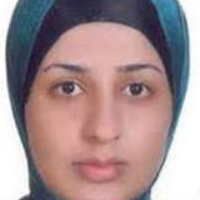Correlation Analysis between ResearchGate Indicators and Academic Times Ranking in the Field of Computer Sciences
Nowadays, with the increasing use of Web 2 capabilities, the scientific evaluation of researchers has been considered using altmetrics. The aim of this study was to analyze the correlation between ResearchGate (RG) indicators and academic Times ranking among prominent faculty members in the field of computer sciences affiliated with the top scientific centers (Times) in 2020.
The present study was conducted using the scientometric method and Altmetrics approach. The study population consisted of 100 faculty members affiliated with the top ten academic centers according to the Times Higher Education World University Rankings 2020 in the field of computer sciences at least with degree of associate professor, who were selected by stratified random sampling. Data were analyzed using SPSS 22.
More than half of the population (100 faculty members) had no presence on the RG network. For 47 registered individuals, no significant relationship was found between the five indicators on RG of "RG score", "Citations", "Research Interest", "Research Items" and "Followers" with "Times Ranking" (P-Value> 0.05 in all of five). There was a significant relationship between the "reads" indicator and "Times ranking" in the form of mean inverse correlation (P-value = 0.04, Spearman correlation coefficient= -0.6).
The Timeschr('39') top international computer science researchers with the degrees of associate professor and higher had no more active presence on the RG network. In addition, no significant correlation was observed between "Times Rank" and RG indicators in their activities, except for the "reads".
-
Identifying the Aesthetic Criteria of Academic Library Websites Using a Delphi Panel
, *, Mohammad Zerehsaz, Siamak Mahboub
, -
Disambiguation of Knowledge Domains by emphasize on Medicine Fields: Systematic Review
Hamideh Asadi *, , Moluko Sadat Hosseini Beheshti
Journal of Information Processing and Management, -
Proposing a conceptual framework for the aesthetics of images on the web: Meta-synthesis and ranking components identified
, *, Mohammad Zerehsaz, Siamak Mahboub
Human Information Interaction,




